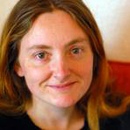Academic Editors
The following people constitute the Editorial Board of Academic Editors for PeerJ. These active academics are the Editors who seek peer reviewers, evaluate their responses, and make editorial decisions on each submission to the journal. Learn more about becoming an Editor.

Laurence Weatherley
Laurence Weatherley is the Albert P Learned Distinguished Professor of Chemical Engineering at the University of Kansas. Weatherley received his PhD from the University of Cambridge in Chemical Engineering for research on ion exchange kinetics in macroporous resins. He has published over 250 research papers, articles, conference papers and other contributions. Dr Weatherley is a chartered professional engineer (UK), is a Fellow of the Institution of Chemical Engineers, United Kingdom, and is a Fellow of the Institution of Professional Engineers of New Zealand. He also holds a visiting Professorship at the Lodz University of Technology, Poland. His research interests are in the area of environmental process engineering and green chemical engineeringwith a focus on the intensification of chemical reaction and separation processes involving liquid mixtures and solid/ liquid mixtures. Process intensification is the development of small, highly efficient methods of processing which take up less space, use smaller amounts of hazardous chemicals, and are suited to the application of new “green” chemistry.

Patrick S Barber
My professional goals center around the intertwined areas of research and education within science. I am passionate about discovering new science that addresses global needs and sharing these discoveries with a broad audience. I'm committed to technical excellence and exploration in the laboratory and enjoy learning new techniques that increase the breadth of my interdisciplinary background. As a scientist and educator, I want to promote the power of the scientific method through discussion of scientific literacy across disciplines and increase the general awareness of the importance of critical thinking. I seek to develop a balance between my professional life and my personal life in order to maintain a well-rounded view which will result in increased communication, productivity, and organizational skills, as well as to being open to new ideas and cultures, and, ultimately, to contribute to my community and society.

Gang Huang
I mainly investigate climate dynamics, especially, the mechanism of variability of atmosphere circulation and monsoon systems in East Asia. I have performed a large number of original studies on the observation and simulation of the impacts of Indian Ocean long-term variability on Asia Monsoons, as well as the dynamics of extreme climate, ENSO dynamics and associated decadal climate variability.

Paul Christakopoulos
Chaired Professor in Chemical and Biochemical Process Engineering, Lulea University of Technology, Associate Editor of World Journal of Microbiology and Biotechnology. Awarded an EU Marie Curie fellowship.

Noushin Ghaffari
Dr. Noushin Ghaffari is a senior member of the bioinformatics team at Texas A&M AgriLife Genomics and Bioinformatics (TxGen), where she is involved in various projects from planning experiments to data analysis. She is also focused on method development and application projects that will impact scientific community. Her research activities have encompassed various areas of computational biology and have enabled her to study and learn more about the characteristics of multiple species. Furthermore, she intensely pursues her theoretical interests focusing on applications of mathematics in solving biological problems. Dr. Ghaffari has led numerous genome and transcriptome assembly projects for novel species such as cattle tick, gene discovery research though RNA-Seq studies, studying microbiome communities via metagenomics research and etc. Dr. Ghaffari has vast teaching experiences and continues to educate Texas A&M faculty/students/researcher on high performance computing, data analysis and bioinformatics.

Christopher John Webster
Prof. Chris Webster is Dean of the Faculty of Architecture, the University of Hong Kong, and leads the HKUrbanLab. He has degrees in urban planning, computer science, economics and economic geography and is a leading urban theorist and spatial economic modeller. He has published over 150 scholarly papers on the idea of spontaneous urban order and received over US$20M grants for research and teaching and learning projects.
His research interests includes leading HKU’s Healthy High Density Cities research group to establish systematic evidence for the relationship between urban configuration (planned and spontaneous) and individual health.
He is a strong supporter of the discipline of Urban Science, believing that much (but by no means all) urban social science of the 20th century did not deliver on its claims and that advances in big data, sensing technology and computing power, are leading to a new engagement between urban decision makers and scientists. The 20th century urban scholars' reliance on small numbers, descriptive case studies, rudimentary analytics, cross-sectional designs and subjective measurements from social surveys are giving way to a more mature phase of urban science, with large-N panel studies, quasi and RCT designs, temporally and spatially fine-grained units of analysis, and a high degree of inter-disciplinarity. Professor Webster's hope is that an increasing number of Urban Science studies will appear in widely-read public science journals.

Scott F Heron
My research experience has spanned over 20 years and has focused on understanding coastal and near-shore environmental physical processes. Each of these research areas has involved the synthesis of physical information with the biological and/or chemical characteristics of the environment through the development of environmental and ecological models. In each of these areas I have published the work in international journals. For several years of this period, I taught physics at universities in Australia and the USA and created courses in environmental physics.

Weijun Luo
Faculty member at the Department of Bioinformatics and Genomics, College of Computing and Informatics, UNC Charlotte.
Research areas include: High throughput genomic data analysis Computational method development and implementation Systems biology on complex diseases and processes Biomedical informatics and computing Personal genome and personalized medicine

Anna K. Croft
Professor at Loughborough University, specialising in biological chemistry, reaction mechanisms, and ionic liquids.

Carl P. Lipo
A Professor of Anthropology and Director of the Environmental Studies Program at Binghamton University in New York.

Jordi Cirera
Jordi Cirera (Barcelona, 1979) graduated in Chemistry from the University of Barcelona (2002) and received his doctorate with honors from the same university in 2006. His first postdoctoral stage was at Stanford University (2007-2010) working on spectroscopic studies and theoretical modeling of copper metalloproteins, under the supervision of Prof. Edward I Solomon. Later, he moved to the University of California, San Diego (UCSD), for a second postdoctoral stage at Prof. Francesco Paesani ́s group, working in the development and implementation of novel methodologies for the computational modeling of spin-crossover processes in Metal-Organic Frameworks (MOFs). He has been visiting researcher at the Max-Planck Institute für Festkörperforschung (MPG-FKF) in Stuttgart and the Institut de Physique et Chimie des Matériaux (ICPMS) in Strasbourg, under the supervision of Prof. Jens Kortus, developing new methods for the calculation of the zero-field splitting parameters in transition metal compounds. Dr. Cirera has been awarded with several grants, including a PhD grant from the Spanish government, a grant from Generalitat de Catalunya for his first postdoctoral stage, and a Beatriu de Pinos/Marie Curie COFUND fellowship grant. He has been speaker at 32 conferences and invited speaker at 5 seminars in international research centers, and is co-author of 36 publications in peer review journals (h-index 21, total citations 2371, 7 as a corresponding author) and two book chapters.

Rony Huys
I am a Principal researcher at The Natural History Museum, London and currently President of the World Association of Copepodologists (WAC).
Copepods are the dominant metazoan group in the marine plankton, are extremely abundant in marine and freshwater sediments and are parasites on virtually every phylum of animals from sponges to chordates.
The main theme of my research is the systematics and comparative anatomy of free-living and parasitic copepods, and the application of phylogenetic reconstruction to examine their evolution and ecological radiation, using morphology and molecular markers. Copepods are one of the best models to study fundamental phenomena like the evolution of parasitism and the marine-freshwater transition, and to test fundamental hypotheses such as the claim of oligomerization being the predominant mode of character transformation in Crustacea, and the enemy release hypothesis in invasion ecology.
I have also developed an interest in examining the relationships of lesser known and molecularly under sampled crustacean lineages such as the Mystacocarida, Pentastomida, Branchiura and Tantulocarida.

